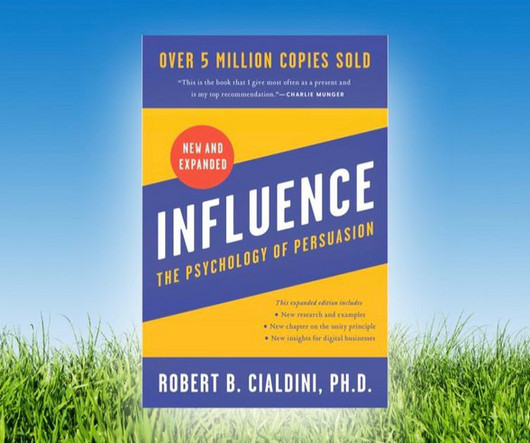Great Books That Grow You: Influence: The Psychology of Persuasion
Rich Gee Group
APRIL 13, 2023
In his seminal book, "Influence: The Psychology of Persuasion," Dr. Robert Cialdini examines these mental shortcuts and identifies six universal principles that influence our decision-making process. Marketers often capitalize on this principle through free samples or discounts, making customers feel obligated to purchase.












Let's personalize your content